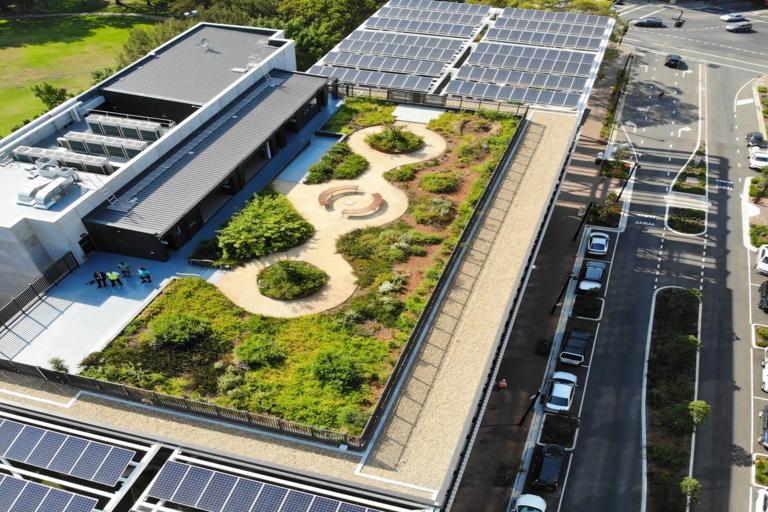Across the rooftops of Sydney’s densely packed inner-city neighborhoods, a quiet agricultural revolution is taking root. Rooftop gardens — once a novelty for luxury apartment buildings — are now spreading across homes, community centres, and businesses as part of a growing urban sustainability movement.
These green spaces are transforming otherwise unused areas into lush, productive gardens. Tomatoes trail down balustrades, beehives buzz atop converted garages, and native herbs sprout beside solar panels. It’s a shift that’s changing not only how Sydneysiders source their food, but how they interact with the city itself.
Atop a community housing complex in Redfern, residents have turned a former tar-sealed rooftop into a 200-square-metre edible garden. Funded by local council grants and run by volunteers, it now produces over 100 kilograms of vegetables per season — shared among tenants and donated to nearby shelters.
‘It’s more than just food,’ said project coordinator Lenore Tang. ‘It’s about connection. People come up here, work the soil, and they talk to each other. We’ve seen a real shift in the building’s atmosphere since it started.’
Green roofs also offer significant environmental benefits. A recent study by the University of Sydney found that buildings with rooftop gardens can reduce indoor temperatures by up to 5°C, cutting air conditioning costs and easing pressure on the city’s energy grid during summer heatwaves.
Stormwater absorption is another advantage. These gardens help manage runoff and reduce the load on Sydney’s ageing drainage systems. Some sites have even been fitted with filtration units that purify water for reuse in toilets and irrigation systems.
Businesses are getting on board, too. In Surry Hills, a boutique brewery has transformed its roof into a hop-growing space and event venue. Elsewhere, cafes are cultivating microgreens and herbs onsite to serve with their dishes — a hyperlocal twist on the paddock-to-plate trend.
The movement hasn’t been without challenges. Council approvals, weight-bearing regulations, and ongoing maintenance all pose hurdles. But new policies in the City of Sydney's 2030 Sustainable Strategy are aiming to streamline the process and offer incentives for developers.
In schools, rooftop gardens are being used as educational tools. Students at Alexandria Park Community School tend to their plots as part of the science curriculum, learning about ecosystems, food cycles, and sustainability. 'It’s hands-on learning with real-world impact,' said teacher Jordan Ames.
Non-profits like Green Urban Projects are working to bring rooftop gardening to social housing and under-resourced areas. With growing interest and increased funding, they’re now planning to scale their programs citywide over the next five years.
As Sydney’s population grows and space becomes more scarce, advocates say rooftops offer an untapped opportunity. 'We’ve paved over so much of this city,' said sustainability consultant Myra Kim. 'It’s time to look up. There’s a whole ecosystem waiting to thrive above us.'
Whether for food, climate resilience, or community building, Sydney’s rooftop gardens are proving that green change doesn’t always require grand gestures — sometimes, it just needs a little soil and a lot of vision.
